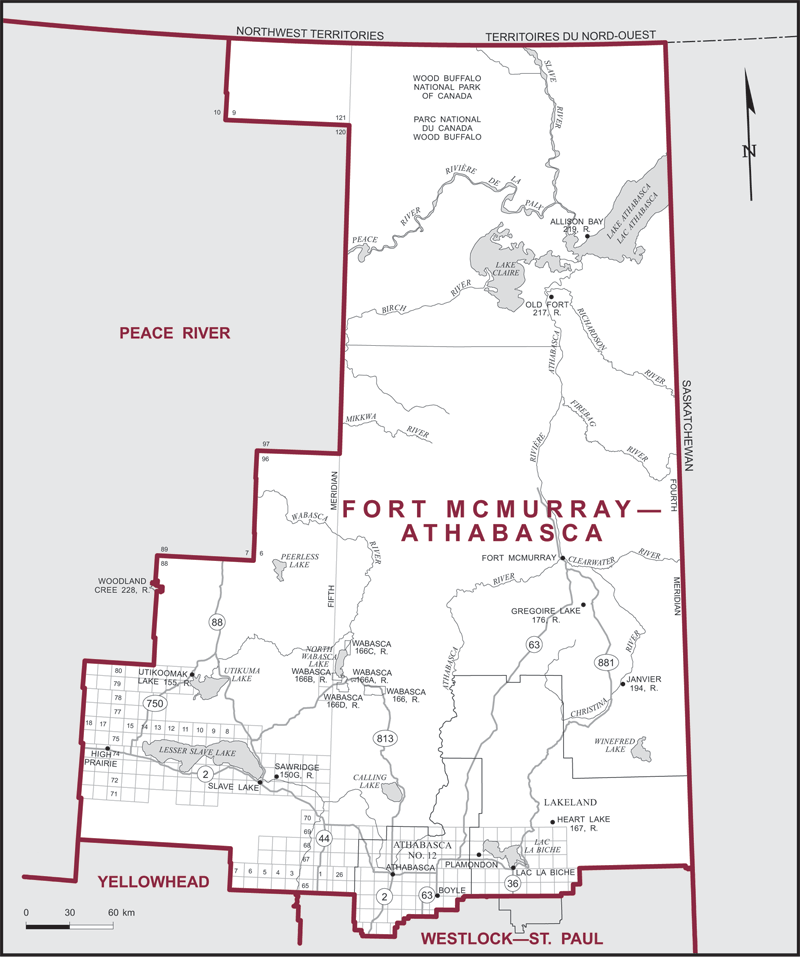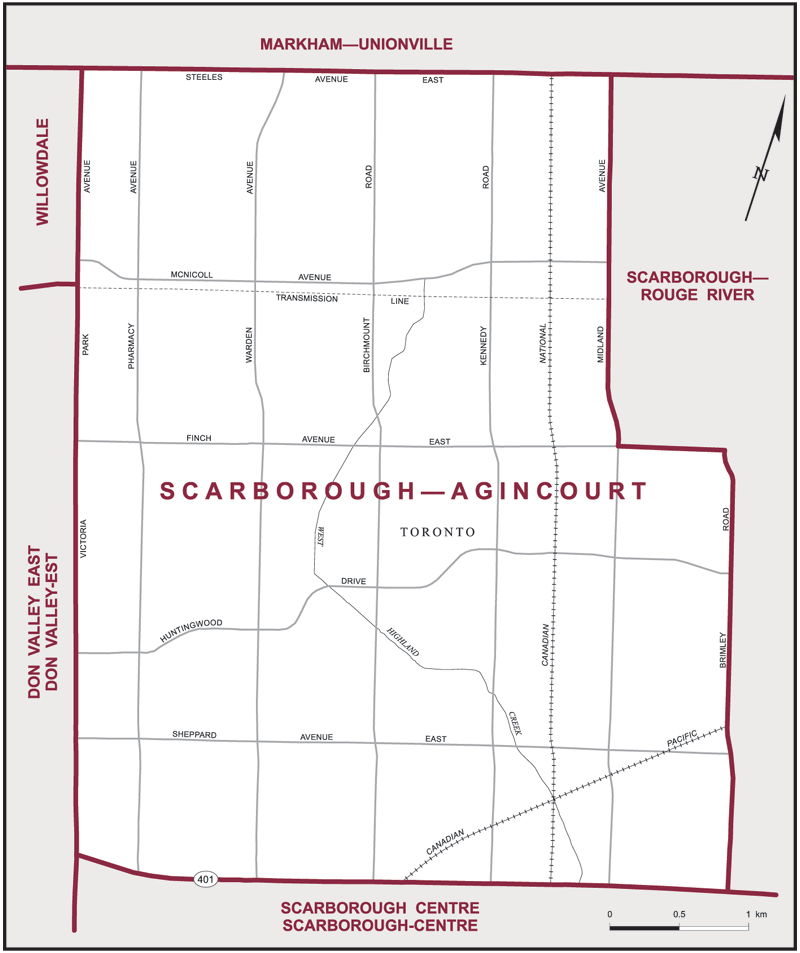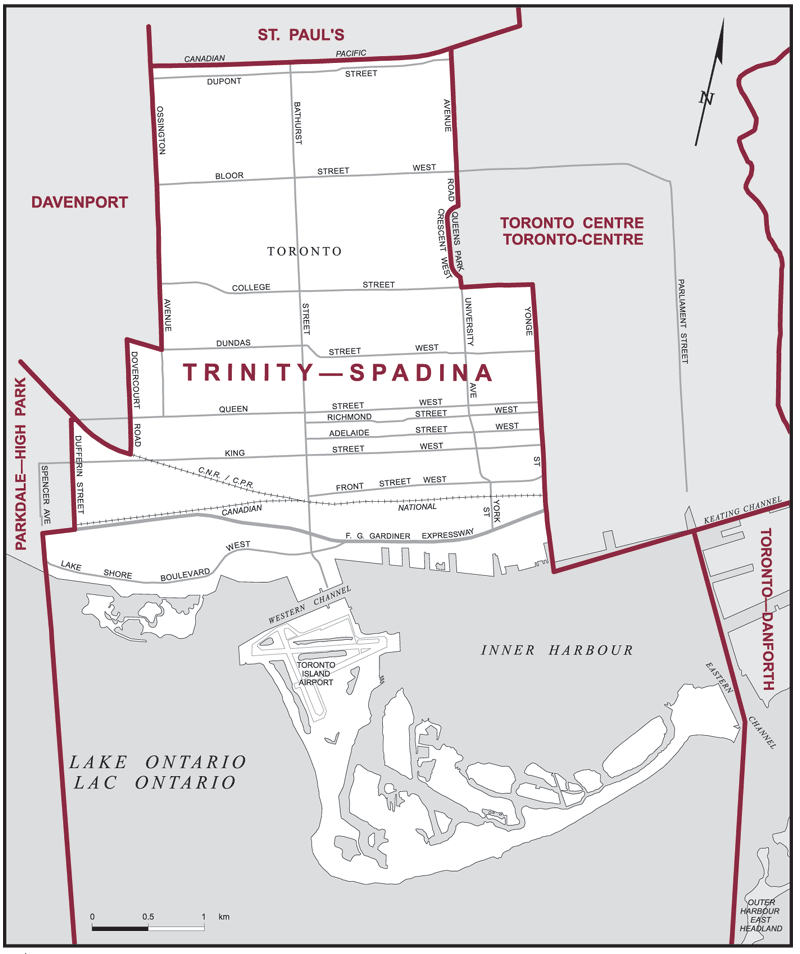By-elections June 30, 2014 – Official Voting Results
June 30, 2014, by-elections
Introduction
This first section of the Chief Electoral Officer's report on the federal by-elections held on
June 30, 2014, describes the circumstances leading to the calling of the four by-elections, the electoral districts involved and the nomination of candidates. It also presents the numbers of registered electors, the polling stations, the voter turnout rates and the candidates elected.
The second section provides more information on the official voting results and summary data, in table format. The concluding section presents the poll-by-poll results for the electoral districts.
Further information on the June 2014 by-elections will appear in a report to be published in March 2015, covering the administration of all by-elections held in 2014. That report will be available at www.elections.ca.
Calling the by-elections
On November 9, 2013, the Conservative member of Parliament for Macleod resigned, leaving his seat in the House of Commons vacant. The Honourable Ted Menzies was a member of Parliament for over nine years. A writ ordering a by-election in Macleod was accordingly issued on May 11, 2014.
On January 17, 2014, the Conservative member of Parliament for Fort McMurray–Athabasca resigned, leaving his seat in the House of Commons vacant. Mr. Brian Jean was a member of Parliament for over nine years. A writ ordering a by-election in Fort McMurray–Athabasca was accordingly issued on May 11, 2014.
On March 13, 2014, the New Democratic Party member of Parliament for Trinity–Spadina resigned, leaving her seat in the House of Commons vacant. Ms. Olivia Chow was a member of Parliament for over eight years. A writ ordering a by-election in Trinity–Spadina was accordingly issued on May 11, 2014.
On April 2, 2014, the Liberal member of Parliament for Scarborough–Agincourt resigned, leaving his seat in the House of Commons vacant. The Honourable Jim Karygiannis was a member of Parliament for over 25 years. A writ ordering a by-election in Scarborough–Agincourt was accordingly issued on May 11, 2014.
The seat distribution in the House of Commons on May 11 was: Conservative Party of Canada – 160 seats; New Democratic Party – 99 seats; Liberal Party of Canada – 35 seats; Bloc Québécois – 4 seats; Green Party of Canada – 2 seats; Independent – 3 seats; and vacant – 5 seats.
Electoral districts
The boundaries of the electoral districts of Fort McMurray–Athabasca, Macleod, Scarborough–Agincourt and Trinity–Spadina were the same as those in effect during the 2011 federal general election. They coincide with the boundaries defined in the Representation Order of 2003, issued in accordance with the Electoral Boundaries Readjustment Act.
| Electoral district | Name | Occupation | Place of residence |
|---|---|---|---|
| Fort McMurray–Athabasca | Pauline Gauthier | Retired | Fort McMurray |
| Macleod | Jo Ann Caroline Partaker | Retired | Okotoks |
| Scarborough–Agincourt | Denis Fraser | Retired | Toronto |
| Trinity–Spadina | Lesley Singer | Businesswoman | Toronto |
Fort McMurray–Athabasca
Population based on the 2006 Census: 115,372

Macleod
Population based on the 2006 Census: 123,778

Scarborough–Agincourt
Population based on the 2006 Census: 112,048

Trinity–Spadina
Population based on the 2006 Census: 144,733

Nomination of candidates
The candidates in the by-elections had until 2:00 p.m. on June 9, 2014, to file their nomination papers in accordance with the date published in the Notice of Election by the returning officers.
In Fort McMurray–Athabasca, five registered parties nominated candidates: the Conservative Party of Canada, the Green Party of Canada, the Liberal Party of Canada, the Libertarian Party of Canada and the New Democratic Party. There were no independent candidates. None of the candidates withdrew during the period in which this was permitted.
In Macleod, five registered parties nominated candidates: the Christian Heritage Party of Canada, the Conservative Party of Canada, the Green Party of Canada, the Liberal Party of Canada and the New Democratic Party. There were no independent candidates. None of the candidates withdrew during the period in which this was permitted.
In Scarborough–Agincourt, four registered parties nominated candidates: the Conservative Party of Canada, the Green Party of Canada, the Liberal Party of Canada and the New Democratic Party. There was one independent candidate. None of the candidates withdrew during the period in which this was permitted.
In Trinity–Spadina, five registered parties nominated candidates: the Christian Heritage Party of Canada, the Conservative Party of Canada, the Green Party of Canada, the Liberal Party of Canada and the New Democratic Party. There was one independent candidate. None of the candidates withdrew during the period in which this was permitted.
Registered electors
For the June 2014 by-elections, there were 82,956 names on the preliminary lists of electors in Fort McMurray–Athabasca; 91,633 in Macleod; 73,009 in Scarborough–Agincourt; and 106,710 in Trinity–Spadina. The lists were produced from information in the National Register of Electors. During the revision period, which extended from May 28 until June 24, 2014, 4,167 electors were registered in Fort McMurray–Athabasca. In Macleod, 3,185 were registered; in Scarborough–Agincourt, 1,583 were registered; and in Trinity–Spadina, 8,218 were registered. These figures include electors who were already on the lists but had changed addresses.
The names recorded on the final lists of electors (that is, the lists prepared after election day) numbered 84,116 in Fort McMurray–Athabasca; 92,332 in Macleod; 74,062 in Scarborough–Agincourt; and 110,252 in Trinity–Spadina.
The final lists included the names of electors who registered on election day, some of whom had changed addresses. In Fort McMurray–Athabasca, 898 electors registered on election day, while 658 registered in Macleod, 497 registered in Scarborough–Agincourt and 2,078 registered in Trinity–Spadina.
Polling stations
On election day, the ordinary polling stations were open from 7:30 a.m. to 7:30 p.m. (Mountain Time) in Fort McMurray–Athabasca and Macleod; and from 9:30 a.m. to 9:30 p.m. (Eastern Time) in Scarborough–Agincourt and Trinity–Spadina.
The returning officer in Fort McMurray–Athabasca set up 185 ordinary polling stations, 179 of which were stationary. In Macleod, there were 238 ordinary polling stations, 229 of which were stationary. In Scarborough–Agincourt, there were 185 ordinary polling stations, 182 of which were stationary. In Trinity–Spadina, there were 333 ordinary polling stations, 329 of which were stationary.
In addition, the Act provides for the establishment of mobile polling stations to collect the votes of seniors and persons with disabilities who live in long-term care facilities. These polling stations, which serve polling divisions with at least two institutions, travel from institution to institution and remain open at each place only as long as necessary to enable the electors present to vote. In the June 2014 by-election in Fort McMurray–Athabasca, 6 mobile polling stations were established and served 637 electors. In Macleod, 9 mobile polling stations served 982 electors. In Scarborough–Agincourt, 3 mobile polling stations served 811 electors. In Trinity–Spadina, 4 mobile polling stations served 433 electors.
The returning officer is required to set up advance polling stations to collect the votes of electors who cannot or do not wish to go to their ordinary polling stations on election day. The electoral district of Fort McMurray–Athabasca had 12 advance polling stations, while Macleod had 15, Scarborough–Agincourt had 11 and Trinity–Spadina had 14. All the advance polling stations were open from noon to 8:00 p.m. (local time) on June 20, 21 and 23.
Voter turnout
A total of 12,860 electors cast a ballot in the by-election in Fort McMurray–Athabasca, a participation rate of 15.3%. Of these electors, 10,167 (or 79.1%) voted on election day at their ordinary polling stations.
In Macleod, 18,324 electors cast a ballot in the by-election, a participation rate of 19.8%. Of these electors, 14,787 (or 80.7%) voted on election day at their ordinary polling stations.
In Scarborough–Agincourt, 21,793 electors cast a ballot in the by-election, a participation rate of 29.4%. Of these electors, 16,694 (or 76.6%) voted on election day at their ordinary polling stations.
In Trinity–Spadina, 34,677 electors cast a ballot in the by-election, a participation rate of 31.5%. Of these electors, 25,869 (or 74.6%) voted on election day at their ordinary polling stations.
| Voting method | Fort McMurray–Athabasca | Macleod | Scarborough–Agincourt | Trinity–Spadina | ||||
|---|---|---|---|---|---|---|---|---|
| No. | % | No. | % | No. | % | No. | % | |
| Ordinary polling stations | 10,167 | 79.1 | 14,787 | 80.7 | 16,694 | 76.6 | 25,869 | 74.6 |
| Advance polling stations | 2,301 | 17.9 | 3,151 | 17.2 | 4,705 | 21.6 | 7,232 | 20.9 |
| Special Voting Rules – Group 1* | 1 | 0.0 | 9 | 0.0 | 6 | 0.0 | 24 | 0.1 |
| Special Voting Rules – Group 2** | 391 | 3.0 | 377 | 2.1 | 388 | 1.8 | 1,552 | 4.5 |
| Total | 12,860 | 100 | 18,324 | 100 | 21,793 | 100 | 34,677 | 100*** |
*Includes Canadian citizens temporarily residing outside Canada, members of the Canadian Forces (except members of the Canadian Forces who voted at the polling station established for the polling division of their place of ordinary residence) and incarcerated electors.
**Includes Canadian citizens residing in Canada who voted by special ballot in or outside their electoral districts.
***Due to rounding, figures do not add up to total shown.
Candidates elected
In the June 2014 by-elections, the Conservative Party of Canada candidate, David Yurdiga, was declared elected in Fort McMurray–Athabasca once the validation of results was completed. The Conservative Party of Canada candidate, John Barlow, was declared elected in Macleod after the validation of results. In Scarborough–Agincourt, the Liberal Party of Canada candidate, Arnold Chan, was declared elected after the validation of results. In Trinity–Spadina, the Liberal Party of Canada candidate, Adam Vaughan, was declared elected after the validation of results.
| Party | Seats |
|---|---|
| Conservative Party of Canada | 162 |
| New Democratic Party | 98 |
| Liberal Party of Canada | 37 |
| Bloc Québécois | 4 |
| Green Party of Canada | 2 |
| Independent | 4 |
| Vacant | 1 |
| Total | 308 |
